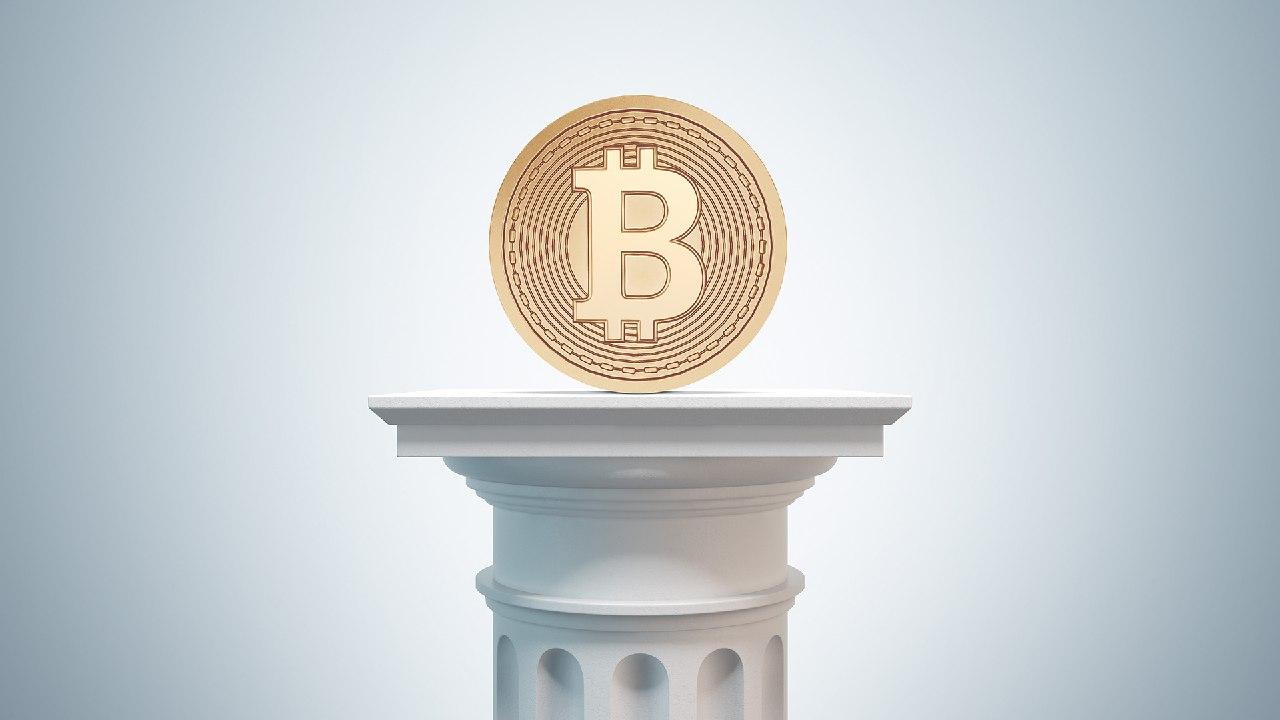You don’t have to be a crypto novice to fall prey to a crypto scam. They’re all over the market in all kinds – and often dupe even the most experienced crypto investor. While cryptocurrency may be in the regulatory grey areas in most markets, these crypto scams are, by most laws, still illegal. After all, they’re engaging in data theft, identity theft, and deceit. So it’s important to note that these scams aren’t unique to crypto. In fact, it’s a sign of the growing crypto market that the space is being flooded with scammers.
It’s not surprising then, that we can easily fall victim to fraudsters and hackers aspiring to prey on fresh, inexperienced investors. Let’s take a look at the most nefarious cryptocurrency scams that you can avoid, help you tell apart the fake from the legit one.
And, general advice for every crypto decision you take – before you devote yourself to a crypto company, carefully examine their credentials. Look at their teams, their background, their record so far, etc to get the hang of their current situation. Only then, move your bags to them. Often, this step alone is more than adequate.
Let’s dip our toes into the most ordinary and extraordinary crypto scams.
1. Fake ICOs (initial coin offerings)
Fake ICOs are some of the most widespread types of cryptocurrency scams.
In case you aren’t aware of what an ICO is, in short, an ICO is the crypto equivalent of an IPO (Initial public offering). Much like a company going public with shares, an IPO involves a crypto project releasing tokens or coins to investors in exchange for cryptocurrencies like Bitcoin, Ethereum, etc.
The problem is, fake ICOs lure investors by guaranteeing sky-high gains (up to 1,000x!) in just a few weeks. A Bloomberg study states that over 80 percent of ICOs are deceitful, with less than 8 percent actually being transparent and successful.
2. ‘Overnight’ exchanges
Overnight exchanges are the precursors to the ‘exit scams’ you may have heard about. They’re fake exchanges, in short. Their volumes are dubious, their users are fake, and they exist solely for you to move your crypto into their wallets. Once in, you may either trade (and lose your money) based on fake market movements on the platform, or they may just shut shop and leave you without any of your assets.
Remember to select a legitimate and regulated cryptocurrency broker or exchange system. Or, you are risking your entire portfolio by betting on a fairytale scheme.
After all, who would want a shady dealer pocketing all their coins while you are left with a dent in your wallet?
3. Fraudulent wallets
Crypto wallets are perhaps the easiest crypto scam to pull off. With them being complex as they are – with jargon like private key, public keys and what not – it’s easy for folks to set up a Bitcoin ‘wallet’ where people decide to move their assets. The next thing they know – they’ve been swindled, because the developer also controls those wallets! Such wallets are very commonly found on the Google Play Store. While Google is fighting them tooth and nail, malicious developers outnumber them at times.
For the record, there’s nothing wrong with letting an app manage your cryptocurrency portfolio. But beware of the cloned apps, or your money will be gone to neverland.
4. Pyramid schemes (Ponzi schemes)
Ponzi schemes require you to invite others into a network to make gains. Perhaps the most famous example of this kind of crypto scam is Bitconnect (more on it, below), the spectacular failure that has now spawned a generation of memes. Bitconnect offered a daily 1% gain to its customers. In short, in a ponzi scheme, the scammer appears with a ‘foolproof’ investment scheme. The swindler will convince you to attach your money to this outstanding venture, assuring elevated gains.
You will then invest a sum amount in the idea. There’s more – the initial investors, you, in this case, will now have the chore to bring in new investors if they want to get a share of digital coins.
Once the new investors stride in, the older ones start getting payouts. The cycle goes on until the recent investors run dry, and the only one who stands to win after all is the scammer.
5. Classic phishing
This scam isn’t just a crypto scam – it’s quite prevalent in general digital markets as well. But it’s pretty easy to figure out. Using psychological manipulation; the scammer will con you into disclosing your username, password, or billing information. In crypto cases, the generally used tactics are Punycode and the so-called fake airdrops.
The scammer sends the user a link that sends him to a fake page that looks just like a legit crypto-trading service. Predominantly, the users are asked to send a certain number of Bitcoins or Ether to a spiked MyEtherWallet address. You can guess what happens next.
6. Impersonation
Impersonation scams are the most fatal of them all-very difficult to detect and, therefore, counter. This is what in cybersecurity jargon is called a multi-vector attack.
First, the impersonator must collect as much information as he can about the victim. Now comes the company on behalf of which he will try contacting the victim, also calling up some vital info.
For instance, the scammers guise as the project owner or even the company’s CEO to lure the victim with an irresistible offer.
Employing a mixture of social engineering, phishing, and cold-calling, the charlatan will entice the victim into financing his crypto coins into his idea. The scammers do their homework well, hence the only defense might be having some inside details on the company.
7. Unregulated brokers
Dozens of unregulated online brokers and exchanges bait customers with meager prices, competitive trading products, and rapid returns.
After you create the deposit, it will become increasingly challenging to withdraw your money. For instance, they would ask for high commissions or make unreal reasons about why you can’t withdraw your funds or gain. Worst case scenario – they avoid your calls and run away with your wealth.
8. Automated trading systems
We have a general inclination to deduce the price differences between various exchanges, given the volatility of crypto coins.
In most cases, these cryptocurrency exchanges have a ludicrously lengthy withdrawal process; and tend to charge a lot to swap Bitcoins or Ether with fiat currencies (government-issued currency that can’t be backed up by a physical commodity with value, like silver or gold).
These trades take an extended time to settle, implying that anything can happen in the interim.
9. Fake emails
The most prominent way of trapping probable crypto investors is fake emails. They look like legal emails mailed by a legitimate company with logos, headers, names, addresses, social media handles.
If you ever receive such an email, test every bit of information before acting. For example, if the email includes phone numbers or physical addresses, you should contemplate calling the trader.
Ask and research: are the numbers doable? Does the trader operate over a regulated cryptocurrency exchange? Know that scammers will always attempt to show off the plan.
10. Social Engineering Crypto Scams
Social media platforms are an efficient way to discover investors and people who are willing to trade cryptocurrency. However, these platforms are also nests for fake cryptocurrency traders, scammers impersonating legit traders, and bots. You’re likely to come across such cases if you’re part of large Telegram groups and a stranger from the group contacts you hoping to strike a conversation and possibly even invite you to some lucrative crypto scheme.
Remember – if it sounds too good to be true, then it’s absolutely a hoax.
Restrict to legit communication channels and evade private messages received on Facebook, Twitter, or Telegram.
Crypto Scams: The Big Cases
Amit Bhardwaj And The GainBitcoin Scam
This scam came to light thanks to an investor, Mr. Dhruv Shera. People, captivated by the high returns that GainBitcoin guaranteed, invested in them.
Mr. Dhruv Shera was assured by the founder, Amit Bharadwaj, of returns of 10% in the 18 months. He invested around 7 BTC in March 2017.
But when Bitcoin was at its peak in December 2017, Shera, along with other investors, did not earn a single penny.
Realization hit that they had invested in a fraud scheme.
Further investigation indicated that around 8,000 investors were deceived and had lost their money to this Ponzi scheme. Bhardwaj, the key accused, was charged by Delhi Police on March 30, 2018, and brought to Pune for questioning.
Allegedly worth anywhere from $300 Mn to $5 Bn, Bhardwaj has been out on interim bail since the Supreme Court granted it in April, 2019.
All of the 8,000 investors who had invested in the GainBitcoin scheme have written a letter to President Ram Nath Kovind challenging the police’s investigation pattern over this matter.
According to a report proposed by Juhee Jain to De Montfort University, U.K. nearly 70% of the total investors did not test the liability of the terms of the contract.
Many got fascinated with the hefty returns the scheme formulated, and most just signed due to social assertion. Slight negligence at their part, has cost them their hard-earned money.
Crypto Scam on Twitter
In February 2021, a Mumbai-based fan of the Korean pop (K-pop) band BTS recognized that she and her friends had been inadvertently following a Twitter cryptocurrency account.
A few cryptocurrency accounts were being tagged in ARMY giveaways or rewards provided to random users, including albums or merchandise worth $25 to $250 – a common exercise among K-pop fan clubs.
Specific ARMY giveaway hosts asked them to also follow shady cryptocurrency handles.
Twitter quickly moved to block crypto accounts because they used inauthentic means to inflate their followers and amplify content.
Speaking of suspicious activities, many of the crypto accounts that the compromised ARMY promoted also had an ‘egg’ emoji in their Twitter bio and username. It’s a mystery that remains unsolved, and is buried under the dark internet subculture.
Divyesh Darji Of Bitconnect’s Extortion Racket
Darji, a Gujarat-based ‘teacher’, was also the Asia head of UK-based Bitconnect. Darji too promised enormous returns to crypto investors. Bitconnect launched its own cryptocurrency called Bitconnect Coin.
Darji lured Indian investors with vows of 60% monthly interest and incentives as ‘referral interest’.
Pluto Exchange Disappears With Crypto
In September 2020, Delhi Police investigated an alleged cryptocurrency exchange scam, allegedly operated by Pluto Exchange.
One of the plaintiffs was asked to capitalize in a new cryptocurrency that the firm had launched. He was assured 20-30% returns on his investment.
After investing INR 500K in the scheme and earning zero payout, the complainant approached the company’s officials only to find that their office had shifted to Dubai.
The initial investigation established that 43 complainants had invested about INR 2 Cr in the scheme.
The Morris Coin Scam
In 2020, the Bengaluru police scrutinized three companies — Long Reach Global, Long Reach Technologies, and Morris Trading Solutions.
According to the police, these compobtainedlected at least INR 15K from over 1.1 million people pan India to invest in a new cryptocurrency ‘Morris coin’. The police imprisoned a 36-year-old man from Kerala, the CEO of all three entities.
Crypto Used In Online Betting Racket With Chinese Operators
The case came to light after multiple raids at the registered offices of companies where directors and chartered accountants were allegedly found to be involved in running illegal online betting operations. The websites used were from outside India, operated by Chinese nationals.
The arrested, a citizen of Bhavnagar in Gujarat, had bought Tether or USDT cryptocurrency on behalf of one of the accused companies and transported them to unidentified wallets on foreign exchanges. The police allege that the accused had deliberately involved himself in layering the crime proceeds.
According to the central law enforcement agency, the scam is worth over INR 1,000 Cr and implicates cryptocurrency trading through multiple exchanges. There are many other scams too – such as Tronsquire, worth a read.
Tips to avoid Crypto Scams
Research, research, and even more research
Do your reading before investing your crypto coins, as there are over 500 online exchanges.
Research your trades: browse their blogs, glance at the conversion rates, gains, ICOs, over-the-web security protocols. You can also email official representatives to be doubly sure.
Figure out a way to store your Cryptocurrency
Now, there are two ways to store your cryptocurrency: exchange wallets and your own private wallets. If you’re familiar with crypto, you already know that private wallets are the safest. Exchanges work similarly to traditional banks: they give deposits, accounts and charge fees for deposit management and transactions. They also control the ultimate private keys to these wallets, which means they can abscond with the funds or even lock you out.
Know the tell-tale signs of fraudulent ICOs
In the case of ICOs, you can quickly figure out if the project is real or sham, just by closely looking at the white paper for signs of forgery.
These include:
- Less than original whitepapers
- No team members
- Incomplete Pages
- Text inconsistencies
- Staff reluctant to answer tough questions
Take this fake ICO that raised $830K. It listed actor Ryan Gosling as part of its design team.
In a nutshell, read, explore and get your act together before you set foot in the crypto world of trading.

Hitesh Malviya is the Founder of ItsBlockchain. He is one of the most early adopters of blockchain & cryptocurrency enthusiast in India. After being into space for a few years, he started IBC in 2016 to help other early adopters learn about the technology.
Before IBC, Hitesh has founded 4 companies in the cyber security & IT space.
Subscribe to get notified on latest posts.




























